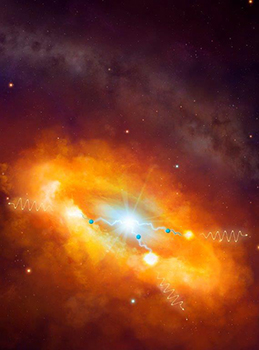Latest News Archive
Please select Category, Year, and then Month to display items
13 August 2024
|
Story Anthony Mthembu
|
Photo Sibahle Dayimani and Amandla Kulu
 Prof Peter Roseel, Managing Director of Management Consulting and Research – a spin-off of the Catholic University of Leuven in Belgium; and Prof Nicolene Barkhuizen, Director of the UFS Business School.
Prof Peter Roseel, Managing Director of Management Consulting and Research – a spin-off of the Catholic University of Leuven in Belgium; and Prof Nicolene Barkhuizen, Director of the UFS Business School.
The Business School at the University of the Free State (UFS) hosted Prof Peter Rosseel, Managing Director of Management Consulting and Research – a spin-off of the Catholic University of Leuven in Belgium – for a guest lecture during his visit to the UFS Faculty of Economic and Management Sciences (EMS).
The guest lecture took place on 19 July 2024 in the Business School Auditorium and was attended by academics from the UFS.
Reflecting on the lecture
The lecture presented by Prof Rosseel focused on how combining strategy, strategy implementation, culture transformation, leadership, and learning successfully leads to sustainable growth, creates engagement, and delivers tangible results. Throughout the lecture, Prof Rosseel spoke about how experts tend to make bad leaders and therefore stop change from happening within an organisation. In fact, he highlighted that, “Experts stop change from happening within the workplace because experts, by definition, look through the eyes of their expertise, but you cannot reduce the world to different forms of expertise, as it is holistic.” As such, he argued that to change an organisation, one must see things from the point of view of others.
Furthermore, Prof Rosseel delved deeper into the hierarchical operating model within organisations. He indicated that the above model should be one community within organisations; however, unfortunately it is not. This is because organisations are made up of several departments such as finance and human resources. As such, he regards these departments to be silos that could prove to be detrimental to organisations, as each silo can create its own culture as opposed to an organisational culture. These are some of the points he discussed throughout the lecture.
After the lecture concluded, the audience had the opportunity to engage with Prof Rosseel on his viewpoints. In fact, Lyle Markham, Academic Head of Department and Lecturer in Industrial Psychology at the UFS, was one of the audience members and described the lecture as insightful.
Two scientists part of team that discovers the source of the highest energy cosmic rays at the centre of the Milky Way
2016-03-22

Artist's impression of the giant molecular clouds surrounding the Galactic Centre, bombarded by very high energy protons accelerated in the vicinity of the central black hole and subsequently shining in gamma rays.
Artist's impression: © Dr Mark A. Garlick/ H.E.S.S. Collaboration Spotlight photo:
Dr Brian van Soelen and Prof Pieter Meintjes of the UFS Department of Physics.
Photo: Charl Devenish
|
H.E.S.S. (High Energy Stereoscopic System) scientists publically revealed their latest galactic discovery in the international science journal, Nature, on 16 March 2016. These scientists were able to pinpoint the most powerful source of cosmic radiation – which, up to now, remained a mystery.
Part of this team of scientists are Prof Pieter Meintjes and Dr Brian van Soelen, both in the University of the Free State (UFS) Department of Physics. Dr Van Soelen explains that they have discovered a proton PeVatron – a source that can accelerate protons up to energies of ~1 PeV (10^15 eV) – at the centre of the Milky Way. The supermassive black hole called Sagittarius A has been identified as the most plausible source of this unprecedented acceleration of protons.
The protons are accelerated to Very High Energy (VHE) gamma rays. The energy of these protons are 100 times larger than those achieved by the Large Hadron Collider at CERN (the European Organization for Nuclear Research).
According to Dr Van Soelen, the fact that this research has been published in Nature demonstrates the importance and pioneering nature of the research conducted by H.E.S.S. The H.E.S.S. observatory – operational in Namibia – is a collaboration between 42 scientific institutions in 12 countries.
In 2006, H.E.S.S. was awarded the Descartes Prize of the European Commission – the highest recognition for collaborative research – and in 2010 the prestigious Rossi Prize of the American Astronomical Society. The extent of the observatory’s significance places it among the ranks of the Hubble Space Telescope and the telescopes of the European Southern Observatory in Chile.
“The next generation VHE gamma-ray telescope,” Dr Van Soelen says, “will be the Cherenkov Telescope Array (CTA), which is currently in the design and development stage.” Both Dr Van Soelen and Prof Meintjes are part of this project as well.
H.E.S.S. has issued a complete statement about the paper published in Nature.